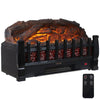As the leaves change color and the air turns crisp, people across the globe prepare for a season of celebration. Fall holidays mark the transition from the warmth of summer to the cozy, reflective days of autumn. While Halloween is perhaps the most well-known holiday in the U.S., other countries celebrate different traditions that honor the changing seasons, loved ones, and history. From vibrant parades to solemn rituals, let's explore how people around the world celebrate Halloween and other fall holidays, and the beautiful decorations that accompany them.
Halloween (The United States)

In the United States, Halloween is synonymous with costumes, trick-or-treating, and haunted houses. Celebrated on October 31, it is a night filled with spooky fun as children and adults alike dress up as ghosts, witches, and popular characters to collect candy from neighbors. Homes and yards are transformed into eerie displays with decorations like carved pumpkins (jack-o'-lanterns), string lights in orange and green, and inflatable decorations like ghosts or giant spiders.
Some families also set up fire pits for roasting marshmallows or telling ghost stories, while others might place pots of fall flowers like chrysanthemums on their porches. Lanterns often light the walkways, creating a magical, glowing ambiance.
Dia de Los Muertos (Mexico and Latin America)

Decorations are a key part of Dia de Los Muertos. Brightly colored skulls (called calaveras) and skeleton figures, often made of sugar or papier-mâché, are everywhere. Families also use lanterns and candles to illuminate their altars and graveyards, symbolizing the light that leads souls back home. This beautiful blend of remembrance and celebration is visually striking, with rich colors and ornate decorations filling homes and public spaces.
Samhain (Ireland and Scotland)

Samhain (pronounced sow-hen), the ancient Celtic festival from which Halloween originated, is still celebrated in parts of Ireland and Scotland. This holiday marks the end of the harvest and the beginning of the darker half of the year. Traditionally celebrated from October 31 to November 1, Samhain is a time when the veil between the living and the dead is believed to be thin.
Fire is a central element of Samhain celebrations. Large bonfires (often created in fire pits today) symbolizing warmth and light, are said to protect people from evil spirits. Lanterns, often made from hollowed-out turnips, were used to ward off malevolent beings, a tradition that eventually evolved into the pumpkin-carving customs of Halloween we see today. Modern celebrations often involve gatherings around fire pits, storytelling, and communal meals, with homes decorated in earthy tones and autumnal harvest items like gourds and wheat.
Ognissanti (Italy)

Ognissanti, or All Saints' Day, is celebrated in Italy on November 1 as a day to honor saints and deceased loved ones. While this is a religious holiday, Italians mark the occasion with quiet family gatherings and visits to cemeteries, where they place fresh flowers on graves.
Although the holiday doesn't involve the same type of decorations seen during Halloween, Ognissanti is often symbolized by the pots of colorful flowers that decorate homes, cemeteries, and churches. Candles and lanterns are also lit in memory of loved ones, creating a serene and reflective atmosphere.
Guy Fawkes Day (England)

In England, Guy Fawkes Day, celebrated on November 5, commemorates the failed Gunpowder Plot of 1605, in which Guy Fawkes attempted to blow up the Houses of Parliament. While the historical significance is quite serious, the modern celebration is a festive affair marked by fireworks, bonfires, and public gatherings.
Effigies of Guy Fawkes are traditionally burned in bonfires, while towns and cities host spectacular firework displays. Fire pits and bonfires take center stage, providing warmth and a focal point for communities to gather.



























